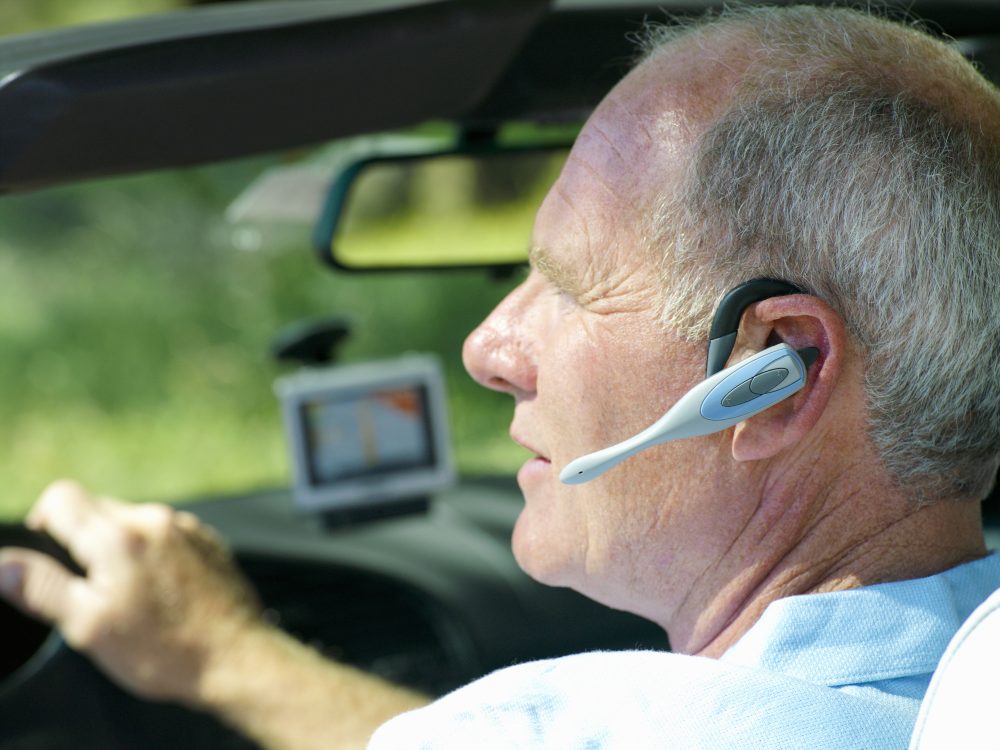OU News
News from The Open University
- Home
- Seven fails by drivers on hands-free mobiles
Seven fails by drivers on hands-free mobiles
Posted on • Psychology

Using hand-held mobile phones in cars is illegal for drivers, and many people have turned to using hands-free mobiles as a safe option – but there’s mounting evidence this is just as dangerous, with drivers using their phones four times more likely to crash.
Psychology expert Dr Gemma Briggs has been studying the distraction of hands-free phones, and found drivers using them were slower to stop and noticed less than half the hazards that un-distracted drivers picked up on.
Seven ways you’re being dangerous
If you’re using a hands-free mobile whilst you’re driving, you’re putting yourself and others at risk. Being distracted in this way, with your mind elsewhere, can mean:
- You don’t notice hazards on the road – even those which appear directly in front of you
- If you’re using the phone when driving you’ll often swerve and weave, and won’t stay in your lane
- You drive at irregular speeds, erratically speeding up and slowing down
- You don’t use your mirrors and indicators – when your mental workload is high, as a driver you may reduce the pressure you’re under by missing parts of the driving task at hand
- You don’t react to dangers in time – the stopping distances of drivers using hands-free phones were significantly longer
- Cognitive and visual tunnelling means you look straight ahead and not to the sides, missing things happening in your peripheral vision
- Relying on your expectations of what normally happens on the road means you don’t notice unexpected events even if they are relevant to driving safely.
New research shows distraction of hands-free phones

Distracted drivers could miss road hazards in their peripheral vision, such as children stepping into the road
Dr Gemma Briggs has led new research testing drivers who were using hands-free phones, examining their reaction times and what they missed on the road. Drivers distracted in this way took, on average, 1.6 seconds longer to react to hazards on the road – when travelling at 30mph this is an extra stopping distance of 21.46 metres – the length of five Ford Fiestas parked nose to tail.
Although there are tough penalties for using hand-held mobiles whilst driving, hands-free mobile use is currently legal but just as distracting. The experts involved are now calling on the Government to examine the evidence and legislate accordingly. Dr Briggs says:
We tend to rely on our expectations of what ‘normally’ happens when we’re driving. However, when attention is also taken up by a phone conversation, distracted drivers over-rely on their expectations and can fail to notice when something out of the ordinary happens. The distraction of phone use affects a driver’s ability to notice unexpected events on the road, and makes them far less likely to react to things in their peripheral vision, such as a child stepping into the road.
Kevin Clinton, Head of Road Safety at the Royal Society for the Prevention of Accidents (RoSPA), supports the evidence, saying:
There’s a significant distraction risk involved with hands-free mobile phones. We think the law should include hands-free phones. Although it is very difficult for the police to detect drivers using hands-free phones just by observation, they can see if a person’s driving is affected because they are distracted, and for more serious crashes or offences, phone records can be checked.
Find out more
Read Dr Briggs’ blog on the mobile phone law and the distraction of phones whilst driving
Read how hands-free mobiles can use drivers’ visual imaginations
Find out more about Dr Briggs’ views on in-car hands-free technologies and mobile phone laws
Look at our free learning on psychology, at OpenLearn
Study psychology with The Open University